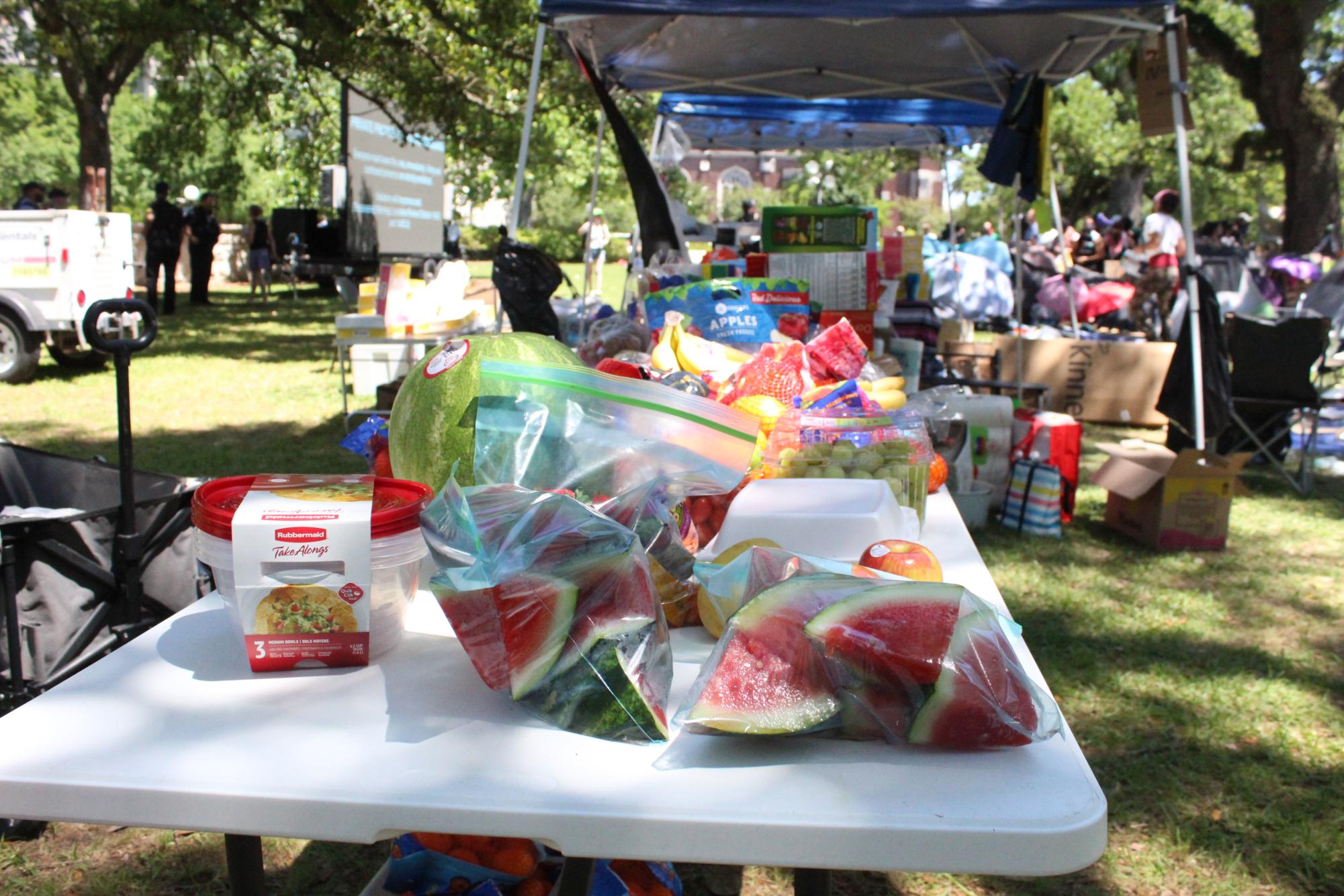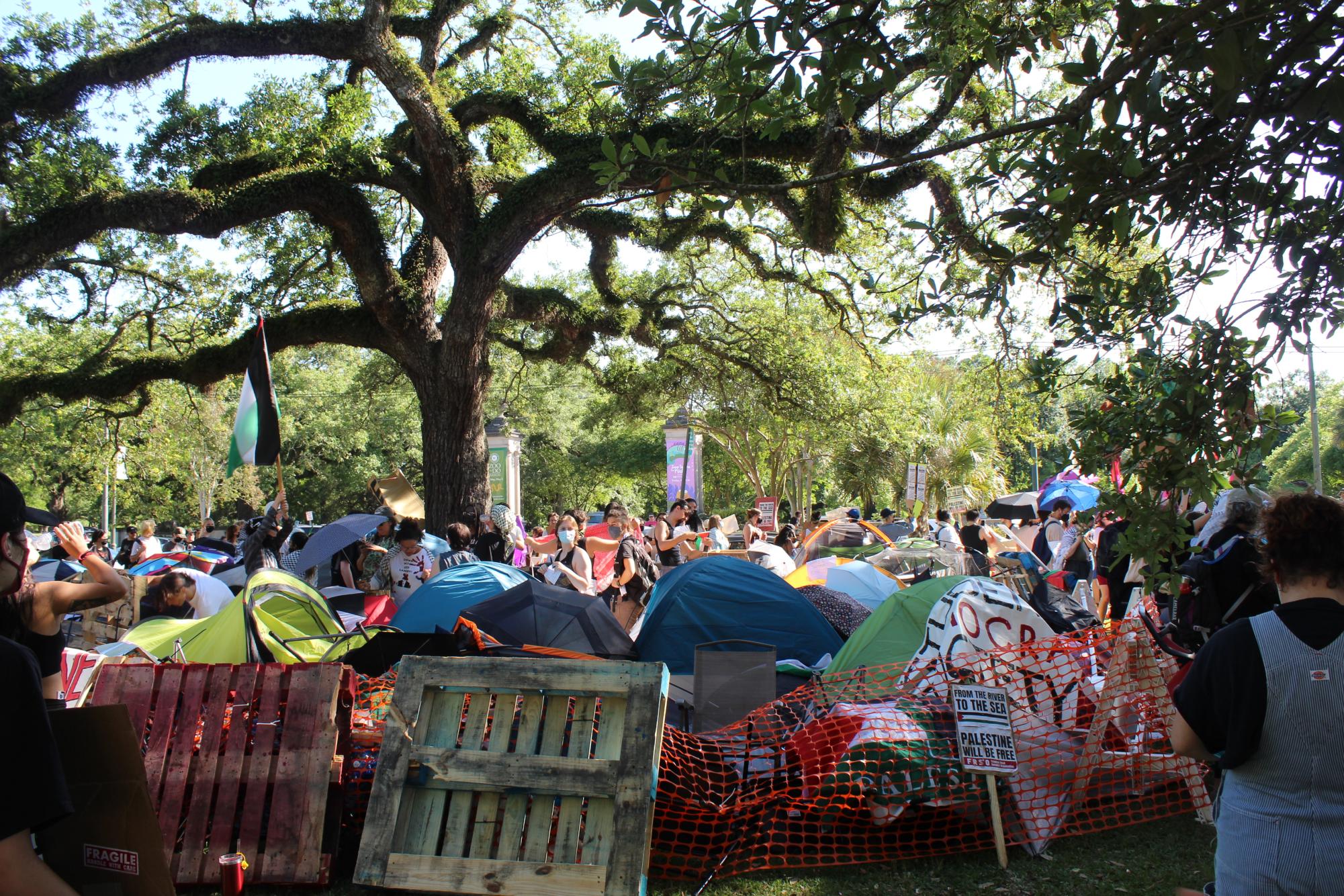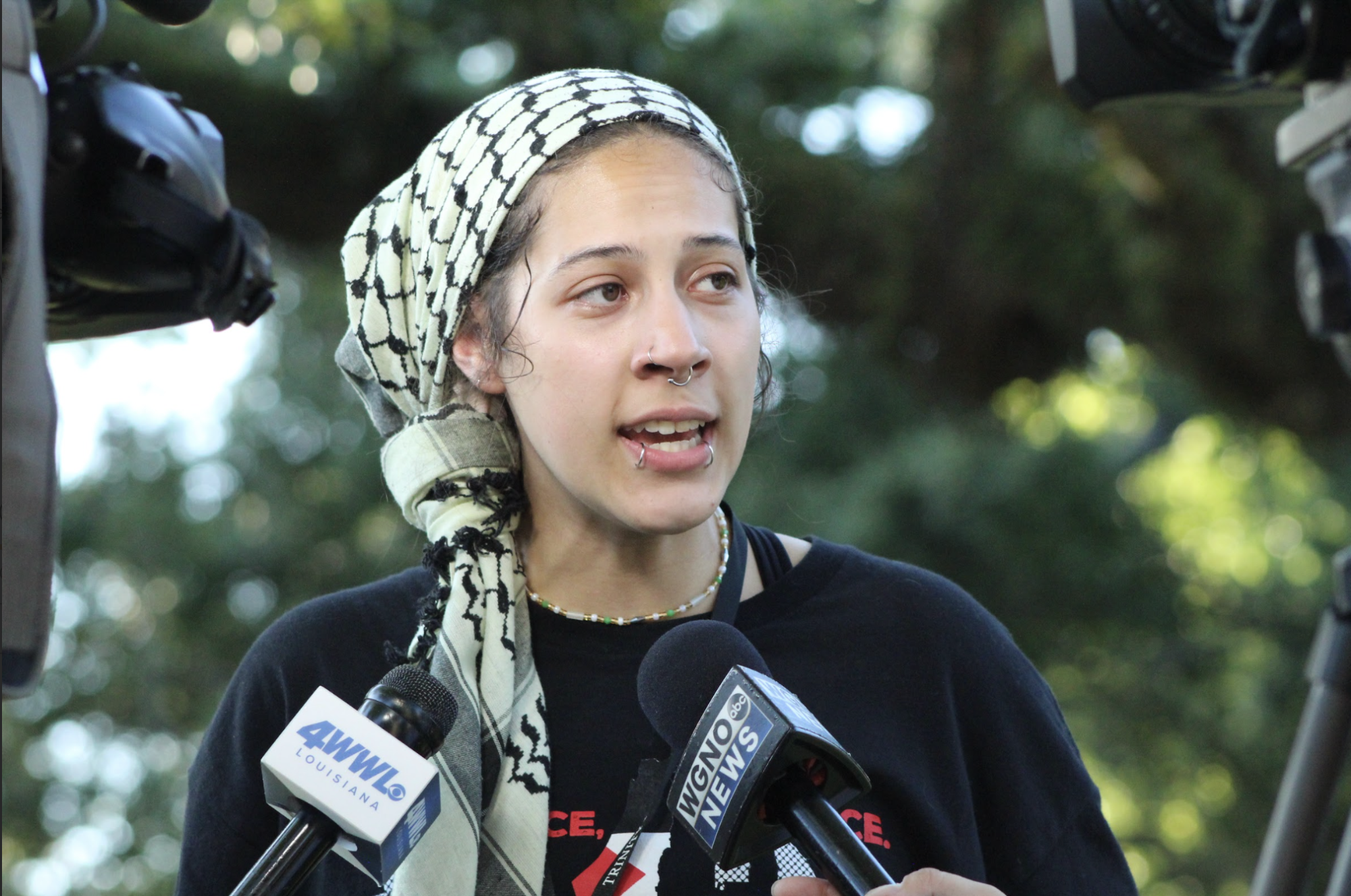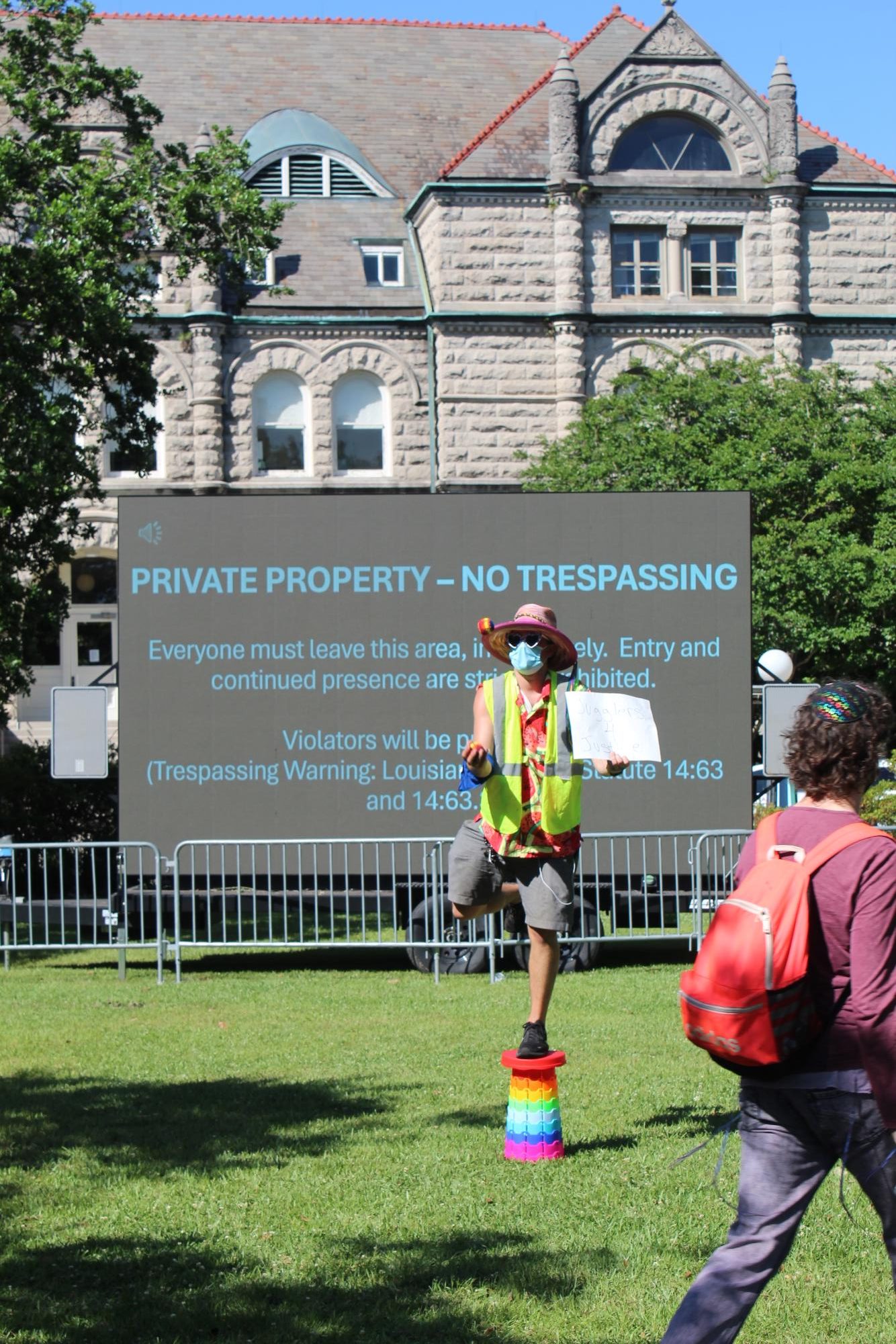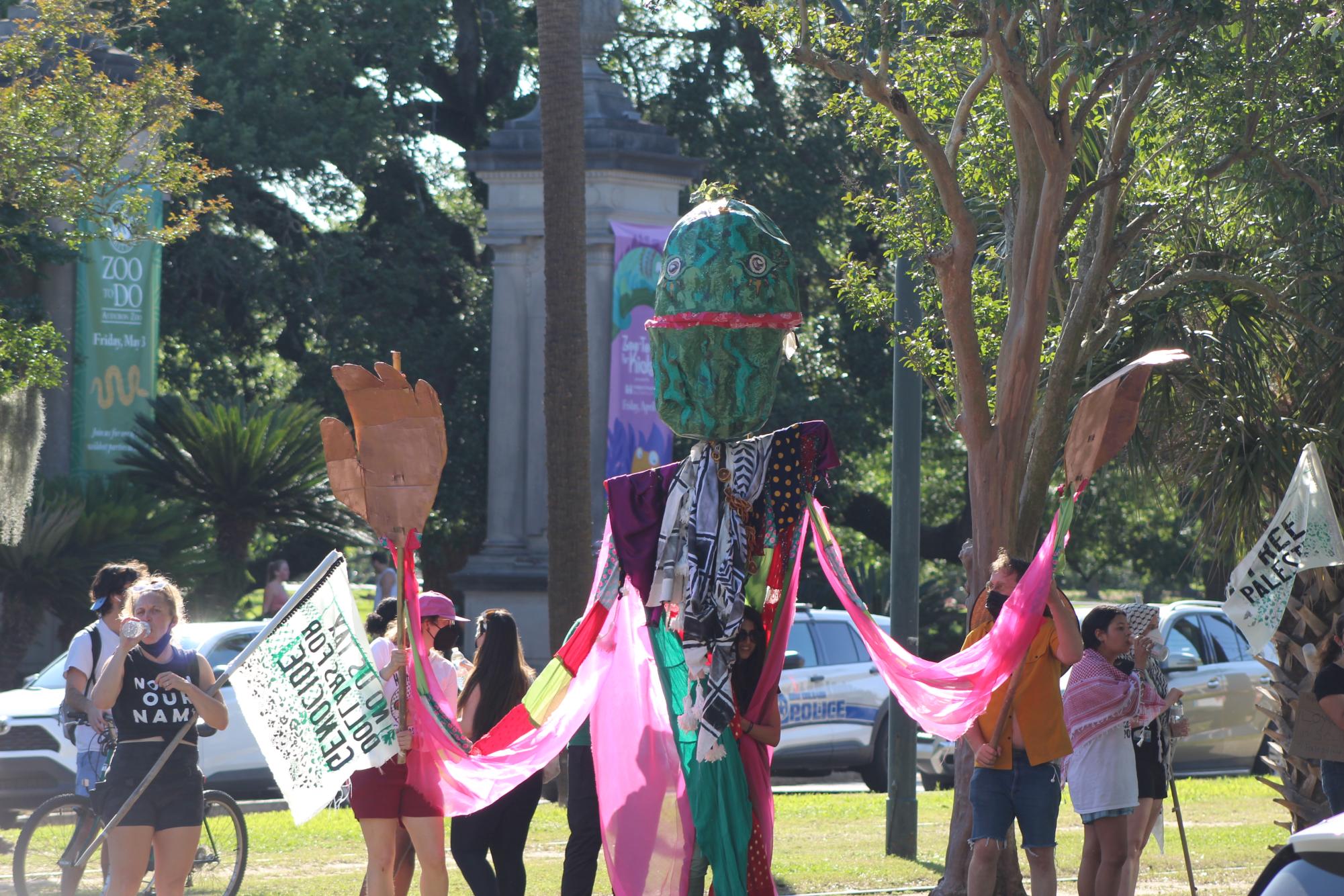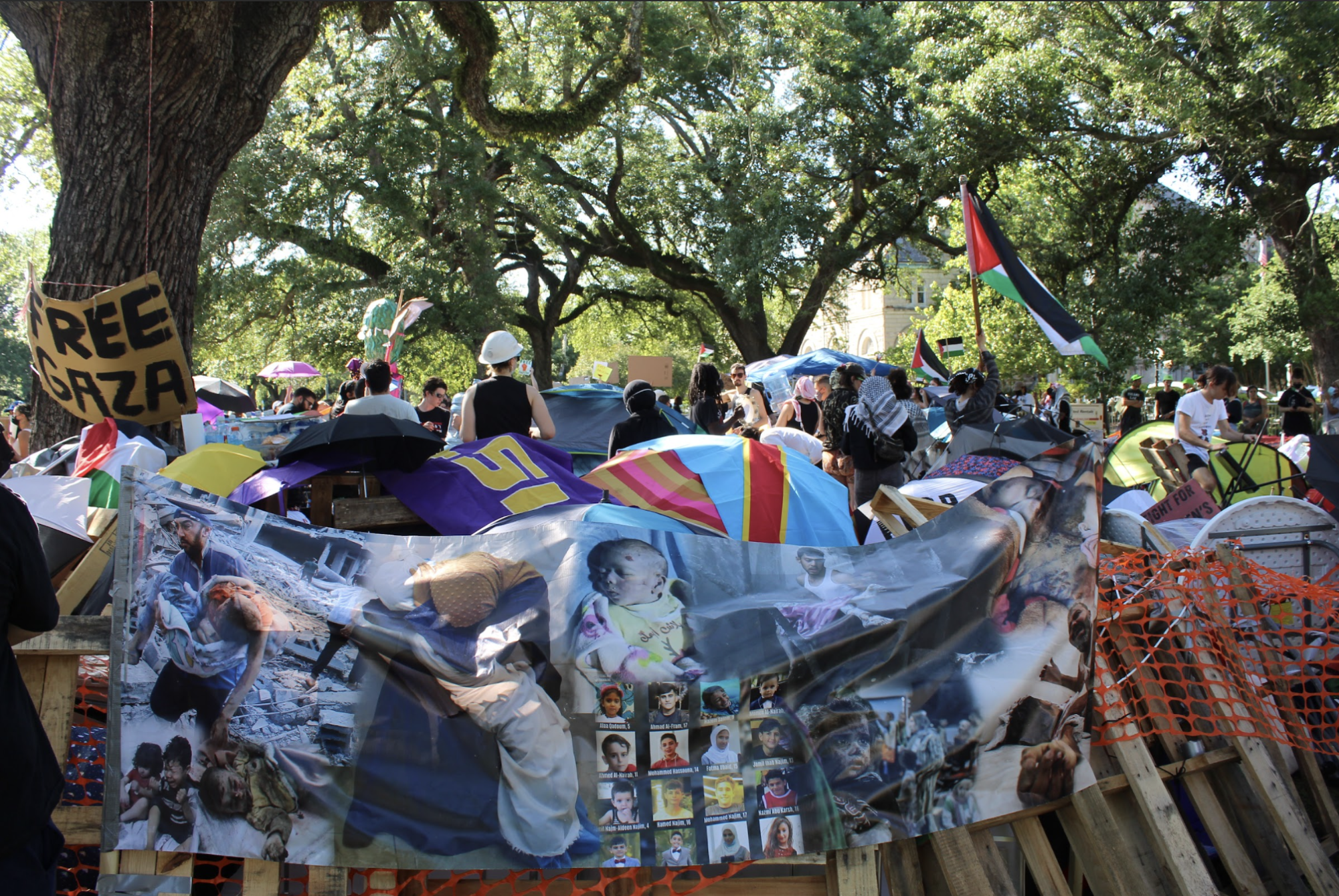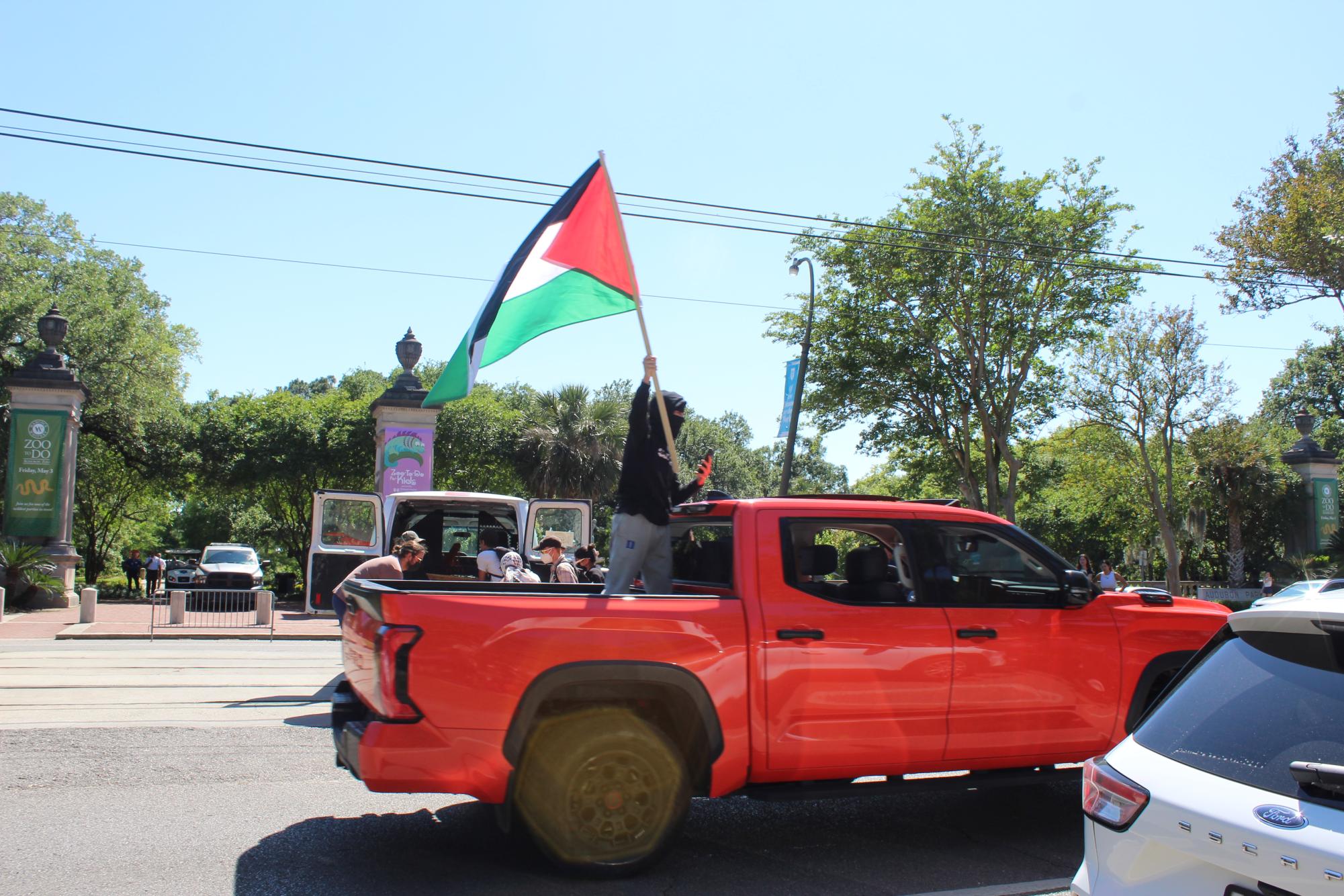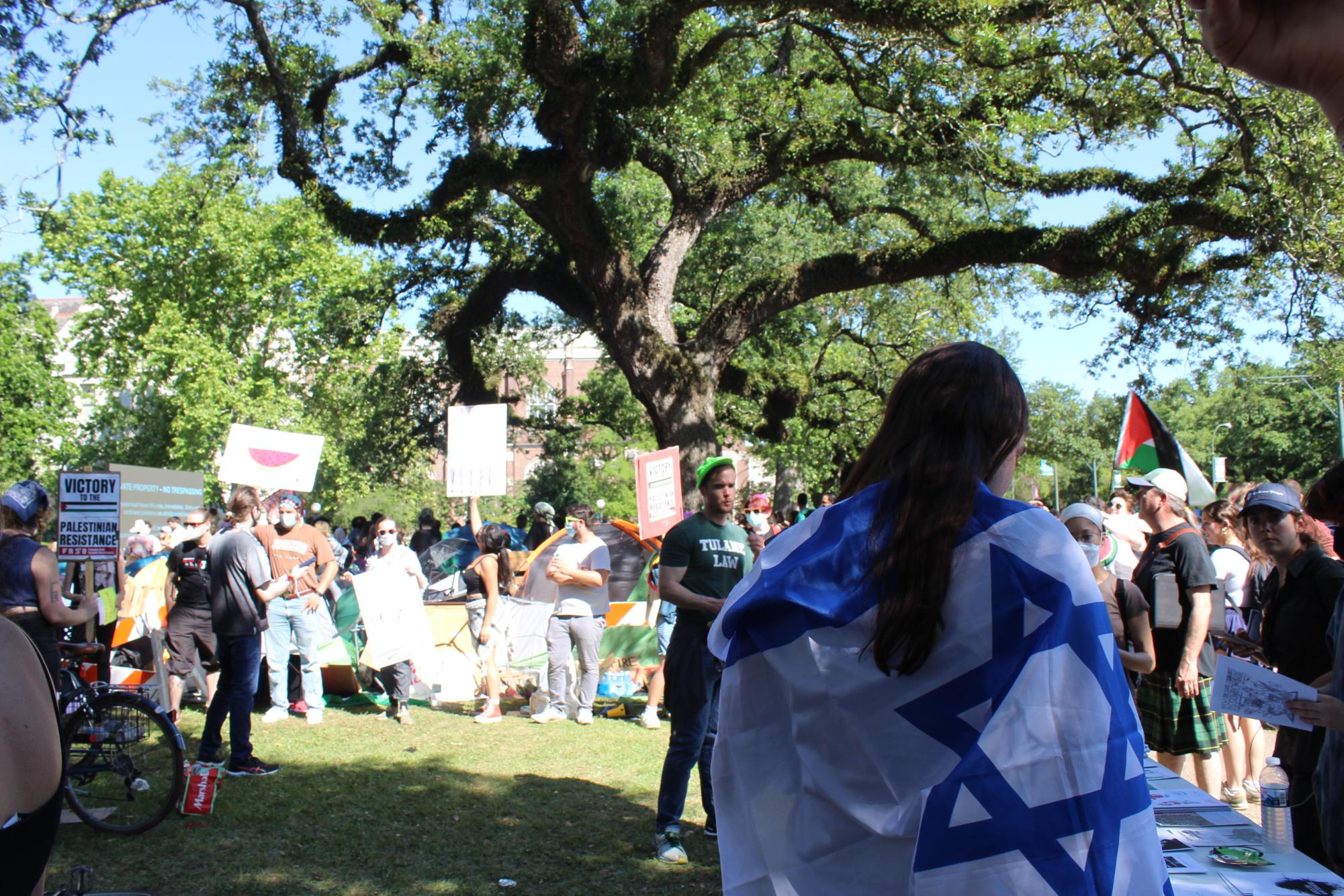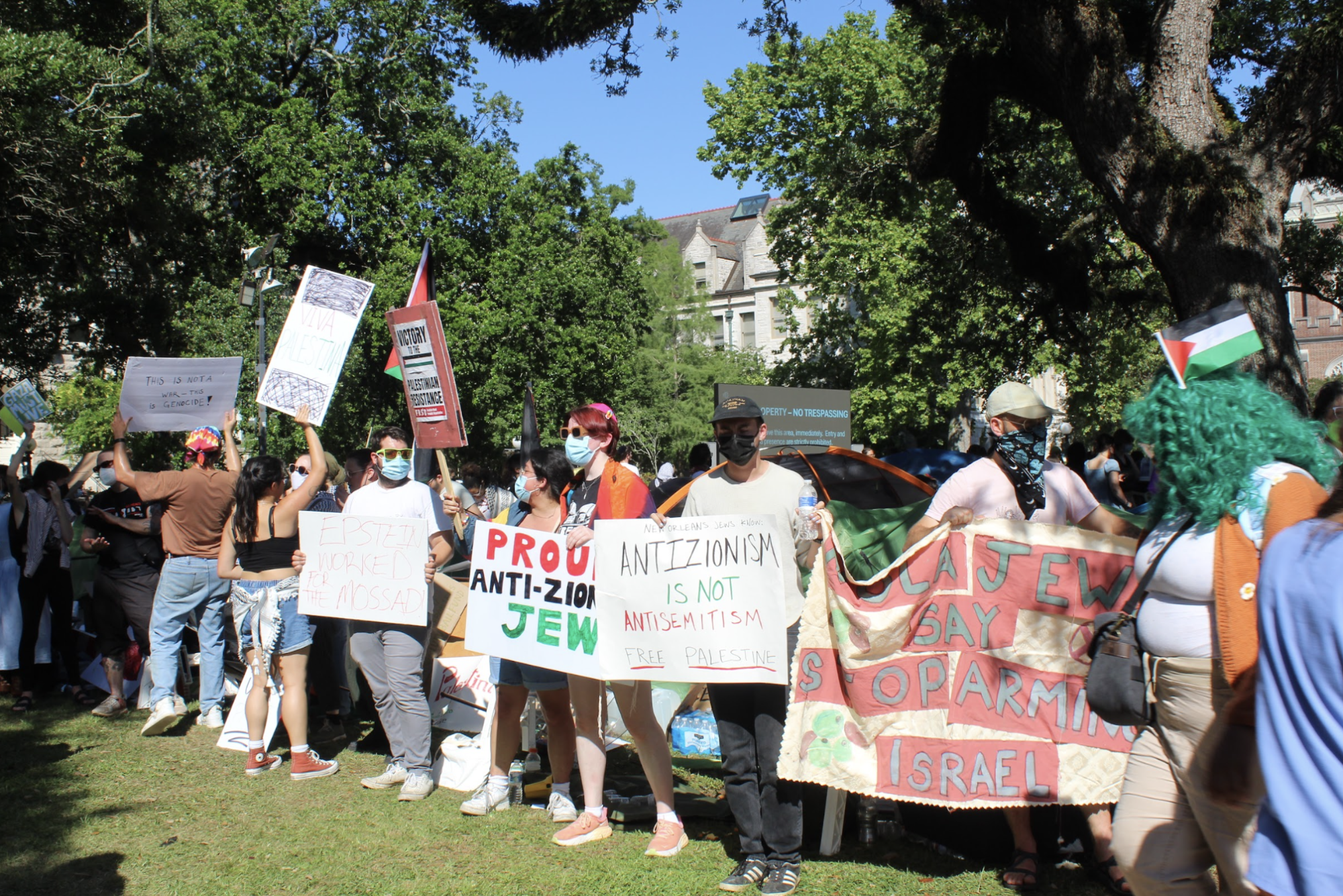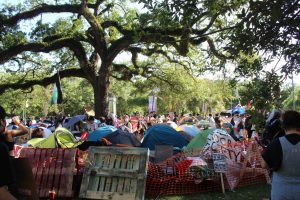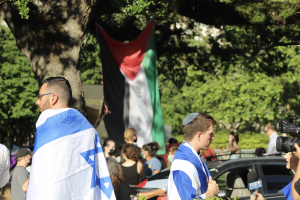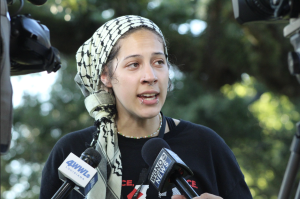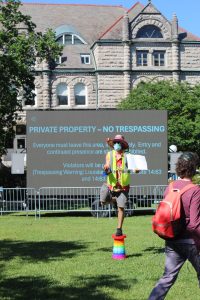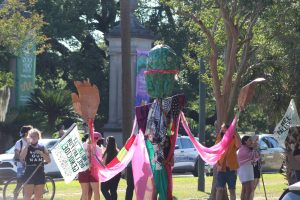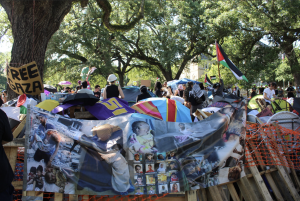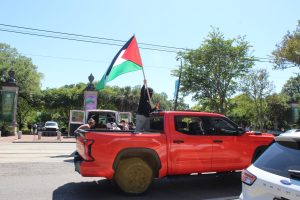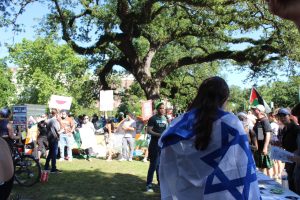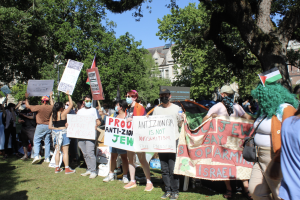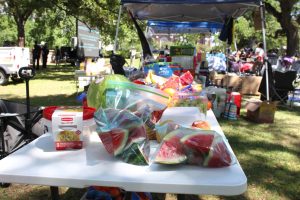Dozens of pro-Palestinian protesters at Tulane University settled in for a second night on Tuesday in a fortified tent encampment that police have so far allowed to remain on campus.
Tulane University President Mike Fitts sent a statement Tuesday evening that said all classes held in Gibson, Tilton Memorial and Dinwiddie Halls “should be conducted remotely” on Wednesday.
Police have made six arrests and Tulane suspended seven students for participating “in this unlawful demonstration,” university officials said late Tuesday. The suspension count increased from Tuesday afternoon, when officials said they issued five suspensions. Tulane said Tuesday night that another suspension is pending.
Campus leaders also said the university is looking into reports of employees participating in the demonstration, but did not provide more details. The school warned any employee who joins the protest is subject to discipline and termination.
“We value free speech and have supported numerous lawful demonstrations throughout this year,” Fitts said in the statement. “But we remain opposed to trespassing, hate speech, antisemitism and bias against religious or ethnic groups. Harassment, intimidation, violence, and other criminal acts on any of our campuses will not be tolerated.”
Encampment extends into second night
It is unclear why Tulane has not moved to clear the encampment even as it calls it “unlawful.” The school did not answer questions about its plans on Tuesday.
Police remained around the area Tuesday night. Protesters built a line of wood pallets around the tents to protect them from authorities.
A large screen, brought in at 2 p.m. by Tulane, reads “Private Property – No Trespassing, Everyone must leave this area, immediately. Entry and continued presence are strictly prohibited. Violators will be prosecuted.”
Large speakers around the sign started playing loud music at around 3:45 p.m.
Police made no arrests on Tuesday.
Since the beginning of the encampment around 6 p.m. on Monday, students, professors, neighbors, police, reporters, administrators and parents have stood on either side of St. Charles Avenue.
The encampment is surrounded by protestors holding signs reading “Jews 4 Palestine” and “Victory to the Palestinian resistance.” Protestors left few silences and cheered slogans such as “Tulane, Tulane you can’t hide, you’re supporting genocide.”
A Tulane freshman, who asked to remain anonymous, said he came to the encampment “to support an effort for peace” and to call for the “divestment of our tuition from companies that support an ongoing war.”
“I want to support my Arab and Muslim friends on campus who are feeling incredibly marginalized and alienated right now,” the freshman said.
Several pro-Palestine protesters wore masks in and around the encampment, mirroring other university protests nationwide.
“During the initial stages and now, [there was] a significant amount of doxxing done for free-Palestine and pro-Palestine protesters,” the freshman said. “So yeah, I’m gonna put a mask on and try to reduce my risk of being doxxed and have my family put a risk.”
Pro-Israel students react
A small group of pro-Israel students and supporters stood on the neutral ground across from the encampment. The pro-Israel side of the street held Israeli flags and occasionally yelled or chanted, but remained relatively quiet compared to the encampment.
Tulane students senior Zoe Silverberg and junior Bali Lavine organized a pro-Israel rally on the Berger Family Lawn on Monday evening with the club Students Supporting Israel. They later came to St. Charles with other pro-Israel students, stayed until around 1 a.m. on Tuesday and returned later that day.
Silverberg is the current co-president of Tulane’s Movement to Address Anti-Semitism and Lavine is the incoming president.
“Anti-Zionism is conflated with antisemitism,” Silverberg said. “This whole thing that’s happening right now, the fact that it’s on campus property, it was moved from public property to campus property, and it’s completely anti-Zionist, antisemitic.”
“We appreciate working with the administration,” Lavine said of Students Supporting Israel’s rally on Monday. “So to come [to the encampment] and see that our university has failed to step in so far, and it’s 10:28 p.m., it’s disturbing.”
Locals, professors join protest
One New Orleans resident, along with her husband and two four-year-old daughters, came to speak at the protest. Walaa Abdel grew up both in the West Bank and New Orleans. While most of her family still lives in the West Bank, she raises her family in New Orleans and said she goes to protests to speak out against Zionism.
Abdel held her daughter and yelled across St. Charles to the pro-Israel protestors facing the encampment to say “shame on them.”
“My grandma was one of the very first people that got kicked out of her house during the 1948 [war]. She was four or five years old … Til this day, she’s holding on to going back to her house,” Abdel said.
Abdel said she hopes that pro-Palestine protests at colleges across the country will accomplish a “permanent ceasefire.”
Tulane environmental science professor Jennifer Veilleux said she came to watch the protest on Monday to support the right of free speech of the Tulane students.
“I feel very disappointed,” she said, “because this is supposed to be a liberal arts college, where people can have conversations with differing points of view and learn that empathy.”
Several Tulane professors came to the protest on Monday, before Tulane sent an email that stated, “employees who participate in the unlawful protest will be subject to disciplinary referral and action by Tulane University, up to and including termination of employment.”
“A lot of the professors are with the students,” Veilleux said. “It is not clear to me what is going on in the minds of these administrators. They are running these universities like their personal corporations. They are spaces of higher education. They are meant to serve the students. Silencing students is not serving students,” Veilleux said.
Beginning Tuesday evening, beyond the makeshift wooden barricades surrounding the encampment, protesters spread out to eat food, play with their kids, sing songs and chant.
One married New Orleans couple, who asked to only be identified as Gina and Mac, brought their three children. They spread out on a couple of blankets and watched from the edge of the grass.
“I’m just really inspired by the student movement in the U.S. right now,” Gina said. “As an elder millennial, I felt like I had to come out and just keep an eye on stuff and be a buffer from the police.”
Mac, who said his grandfather was a professor at Tulane, said, “It’s a tale as old as time that the people with the power and the money are just lined up against the people who have the will to do the right thing,” referring to the police and the encampment.
“Security remains at its highest level throughout the university,” Fitts said in the statement Tuesday night.
Staff Writer Lillian Foster contributed reporting.



